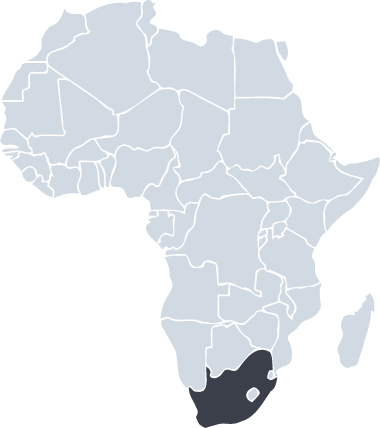Honeybush tea - multispecies blend
Origin
Honeybush is the common name for all 23 species of flowering fynbos shrubs in the Cyclopia genus. Indigenous peoples have brewed tea from honeybush species for centuries, using it to treat respiratory illnesses and improve immune response. Low in tannins and caffeine free, honeybush tea has a rich amber colour and a floral, honey-sweet flavour. An additive in beverages, cosmetics, nutraceuticals and pharmaceuticals, extracts of honeybush have powerful antioxidant and antimicrobial activity. Several studies are currently exploring the chemical components and health benefits of honeybush.
Honeybush must be picked quickly, under the right conditions and temperature, as fermentation and oxidation begins immediately. The LKHBCo sends their raw plant material to an independent processing facility before carefully blending to highlight different taste profiles. The flavour of honeybush will vary depending on where it was grown, when it was harvested, and how it was processed: no wild honeybush plant is the same, and even cultivated plants absorb the particular quality of a farmer’s care for his crops. The LKHBCo makes sense of this complexity with meticulous selection, separation and blending processes.
Country of origin:
South Africa
Producer:
Langkloof Honeybush Company
Harvesting season:
Year round
Production method:
Cultivated and wild harvested

How it’s produced
The Langkloof Honeybush Company is a developing producer committed to pioneering environmental and social responsibility in the emerging honeybush industry.
Cultivation and wild harvest
As the market for honeybush grows, the cultivation of honeybush will be critical to the industry's sustainability. To build this capacity, the LKHBCo launched a R&D program focused on selection and regenerative cultivation methods. Currently Cyclopia longifolia, C. maculata and C. subternata are cultivated by local farmers with support from the LKHBCo. This blends contains C. subternata as well as wild harvested C. intermedia.
The LKHBCo also sustainably harvests wild C. intermedia from the Langkloof mountains. They evaluate wild populations to determine appropriate harvest volumes, using site-specific harvesting plans that ensure only mature plants are targeted during non-flowering periods to allow for uninterrupted seed production. The LKHBCo also clears invasive species to restore the fynbos ecosystem and reduce the risk of destructive wildfires. Both the LKHBCo’s cultivated and wild harvested honeybush are fully traceable.
Social impact
The LKHBCo uses a dynamic kick-back model to provide a larger portion of profit to the farmer when a higher price is attained in the market. Industry wide, negotiations with indigenous knowledge holders are set to start soon to establish a benefit sharing agreement which will ensure a portion of the profit generated by the sale of honeybush products will be transferred to bodies representing indigenous knowledge holders.
